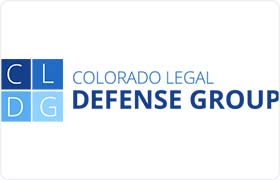Buffalo Creek RICO Act Lawyer, Colorado
Sponsored Law Firm
-
 x
x

Click For More Info:
-
Colorado Legal Defense Group
2801 Youngfield St. Ste. 300 Golden, CO 80401» view mapCriminal Colorado Criminal Defense Lawyers
Our Colorado criminal defense attorneys handle all types of criminal cases -- from Colorado DUI / DWAI and Colorado domestic violence cases, to drug crimes and juvenile crimes.
800-764-8851
Joseph Arnold Davies
Real Estate, Litigation, RICO Act, Business & Trade
Status: In Good Standing Licensed: 49 Years
Kenneth R. Bennington
Construction, Class Action, RICO Act, Business & Trade
Status: In Good Standing Licensed: 47 Years
Miles M. Gersh
RICO Act, Class Action, Legal Malpractice, Litigation
Status: In Good Standing Licensed: 53 Years
 Melissa Garscin Denver, CO
Melissa Garscin Denver, CO AboutColorado Legal Defense Group
AboutColorado Legal Defense Group Practice AreasExpertise
Practice AreasExpertise
